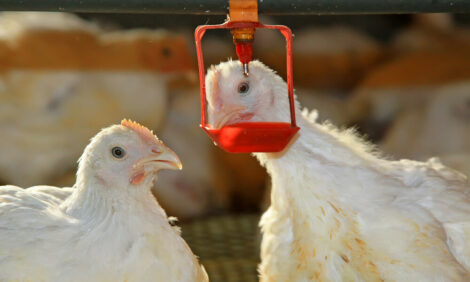



Biodiesel Returns US Soybean Farmers’ Investment
US - An updated, independent study funded by the United Soybean Board (USB) and soybean checkoff shows production of biodiesel continues to positively impact US soybean farmers' on-farm profitability as well as the bottom lines of poultry and livestock farmers.According to the study, the biodiesel industry’s demand for US soybean oil supported US soybean prices by as much as 27 cents per bushel over the past five years, bringing US soybean farmers an additional $2.7 billion in net returns.
The study also found good news for the US soybean industry’s biggest customer, the US animal agriculture sector, which uses nearly 98 per cent of the domestic supply of US soybean meal. The increased demand for soybean oil resulted in a larger supply of US soybean meal, decreasing feed prices paid by US poultry, livestock and fish farmers by between $16 and $48 per ton in marketing years 2005-2009.
“As a soybean farmer, I’m thrilled to see that biodiesel puts this much extra money back in our pockets,” says Jim Schriver, chair of USB’s Domestic Marketing program and a soybean farmer from Montpelier, Ind. “But the study also shows that biodiesel helps us support our best customers by making feed more affordable. Lower feed prices help US animal farmers stay competitive.”
Soybean oil remains the dominant feedstock for biodiesel production, and the soybean checkoff funds a large portion of the research and promotion of biodiesel through the National Biodiesel Board. Much of this funding has been used on testing to prove biodiesel’s performance, economic and environmental benefits.
Biodiesel improves fuel lubricity by 66 per cent compared with petroleum diesel and performs similarly to petroleum diesel in terms of torque, horsepower, haulage rates and fuel mileage. Additionally, biodiesel bolsters the US economy, supporting more than 20,000 jobs and generating more than $800 million in tax revenue as recently as 2009. And biodiesel can reduce greenhouse gas emissions by as much as 75 per cent, which helps fight global warming.
These environmental benefits helped biodiesel qualify as the United States’ first domestically produced advanced biofuel under the revised federal Renewable Fuel Standard. This requirement calls for the use of at least 800 million gallons of biodiesel this year and at least 1 billion gallons per year in 2012 and beyond.
The increased biodiesel production needed to meet this demand will be important. In 2006, the federal government required food containing trans fat to be labeled. Partially hydrogenated soybean oil creates trans fat, and the study shows biodiesel demand helped mask US soybean oil demand losses after some food manufacturers switched to other oils to avoid trans-fat labeling. These declines in demand could continue over the next couple years.









